
Thomas Bradley was an American politician, athlete, police officer, and lawyer who served as the 38th Mayor of Los Angeles from 1973 to 1993. Bradley was Los Angeles' first Black mayor, first liberal mayor, and longest-serving mayor. A member of the Democratic Party, Bradley's multiracial liberal political coalition was a forerunner of future President of the United States Barack Obama's coalition in the 2008 and 2012 presidential elections.

The Los Angeles City Council is the lawmaking body for the city government of Los Angeles, California, the second largest city in the United States. It has 15 members who each represent the 15 city council districts that are spread throughout the city's 501 square miles of land.
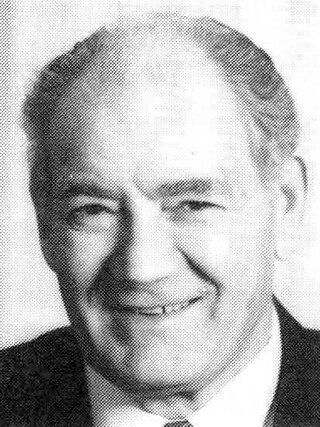
John Ferraro was an American politician and businessman who was a Democratic member of the Los Angeles City Council from 1966 until his death in 2001, the longest tenure of any member in the city's history. Before politics, he was an insurance broker, and had been an all-American football player at the University of Southern California.

Joel Wachs is an American former politician and lawyer. He is the president of the Andy Warhol Foundation for the Visual Arts in New York City. He was a member of the Los Angeles City Council for 30 years, where he was known for his promotion of the arts, support of gay causes, advocacy of rent control and other economic measures.

Kenneth Frederick Hahn was a member of the Los Angeles County Board of Supervisors for forty years, from 1952 to 1992. Hahn was on the Los Angeles City Council from 1947 to 1952. He was an ardent supporter of civil rights throughout the 1960s, and met Martin Luther King Jr. in 1961.

Bob Ronka was a member of the Los Angeles City Council from the San Fernando Valley's 1st District between 1977 and 1981.

Michael K. Woo is an American politician and academic who was the dean of the College of Environmental Design at California State Polytechnic University, Pomona. As a member of the Los Angeles City Council representing District 13 from 1985 to 1993, he was that body's first Asian American member and its youngest member upon his election, at 33.

Richard Alatorre was an American politician who was a member of the California State Assembly from 1973 to 1985 and the Los Angeles City Council from 1985 to 1999, the second Latino to serve on the council in the 20th century. While working as a lobbyist, he had been called "one of the most influential Latino politicians in the state".
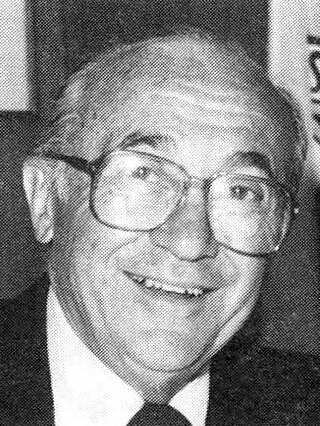
Ernani Bernardi was a big band musician and politician. Bernardi served on the Los Angeles City Council from 1961 to 1993, representing 7th district and becoming the second longest-serving council member in the history of the city. Prior to entering politics, Bernardi was the musical arranger for two of the mid-20th century's most popular dance melodies.

John S. Gibson Jr. was an American politician, whose career spanned many decades and two states. A member of the Democratic Party from San Pedro, Gibson served on the Los Angeles City Council for the 15th district from 1951 and 1981, and did two lengthy stints as its president. Earlier in his life, Gibson's tenure as Mayor of Geneseo, Kansas made him the youngest elected mayor in the nation at the time.

Gilbert William Lindsay was an American politician who worked his way up from Los Angeles City Hall janitor to become the city's first black City Council member and one of its most powerful elected officials. He helped fashion downtown Los Angeles into a major metropolitan center but was accused of turning his back on the people in his district who elected him to 27 years on the city's governing body from 1963 to 1990.
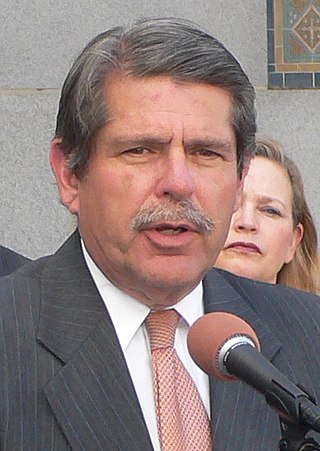
Zev Yaroslavsky is a politician from Los Angeles County, California. He was a member of the Los Angeles County Board of Supervisors from District 3, an affluent district which includes the San Fernando Valley, the Westside of Los Angeles and coastal areas between Venice and the Ventura County line. He was first elected to the board in 1994. Yaroslavsky served on the Los Angeles City Council from 1975 to 1994.

Pizza Man is a 1991 comedy film starring Bill Maher and Annabelle Gurwitch; written and directed by J.F. Lawton, who was credited as J.D. Athens. The film received a PG-13 rating by the MPAA.
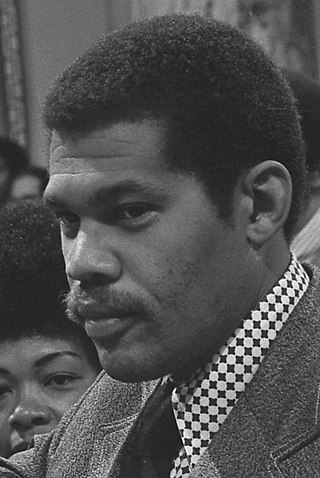
David Surmier Cunningham Jr. was a business executive who was elected to the Los Angeles City Council to replace Tom Bradley, who had been elected mayor that year. He represented the 10th district until 1987, when he resigned.
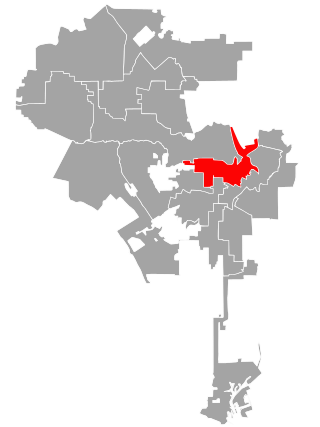
Los Angeles's 13th City Council district is one of the fifteen districts in the Los Angeles City Council. It is currently represented by Democrat Hugo Soto-Martinez since 2022, after beating previous councilmember Mitch O'Farrell that year.

The Robert F. Kennedy Community Schools, called the RFK Community Schools, is a complex of public schools in Los Angeles, California. This was formerly the site of the Ambassador Hotel, the site of the June 1968 assassination of presidential candidate United States Senator Robert F. Kennedy.
Membership discrimination in California social clubs has been based on sex, race, religion, political views and social standing. In the late 1980s, a successful effort was made in many of the clubs to open up membership first to racial or religious minorities and then to women. Strictly private clubs that are not open to the public, and for which tax exemptions are not claimed, maintain their right to discriminate on the basis of sex or race, and all clubs can discriminate on the basis of social standing.
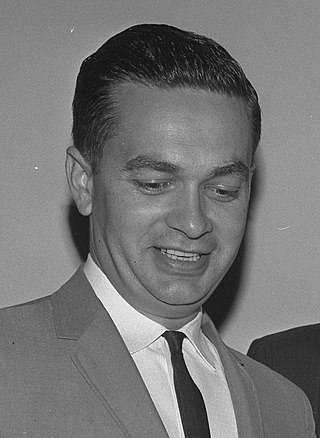
James B. Potter Jr. was a member of the Los Angeles City Council from 1963 to 1971. A sales manager for a tool company, when elected to the City Council he became its youngest member at age 31. He was defeated in 1971 amid controversy over development of a housing tract in the Santa Monica Mountains.

The 1985 Los Angeles mayoral election took place on April 9, 1985. Incumbent Tom Bradley was re-elected over councilmember John Ferraro. Bradley's re-election would give him a fourth term, an unprecedented feat in the office as no mayor except for James R. Toberman had been re-elected to a fourth consecutive term.

The 1989 Los Angeles mayoral election took place on April 11, 1989. Incumbent Tom Bradley was re-elected over ten candidates in the primary election. It would be the last time Bradley ran for mayor, as he chose to retire after his fifth term.




















